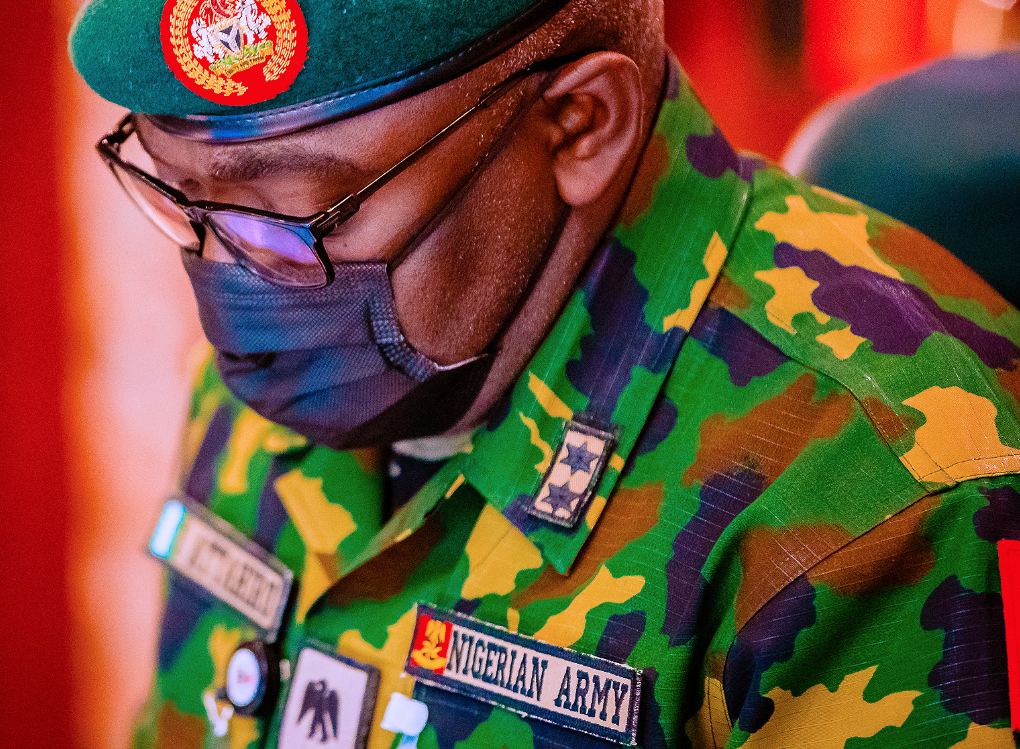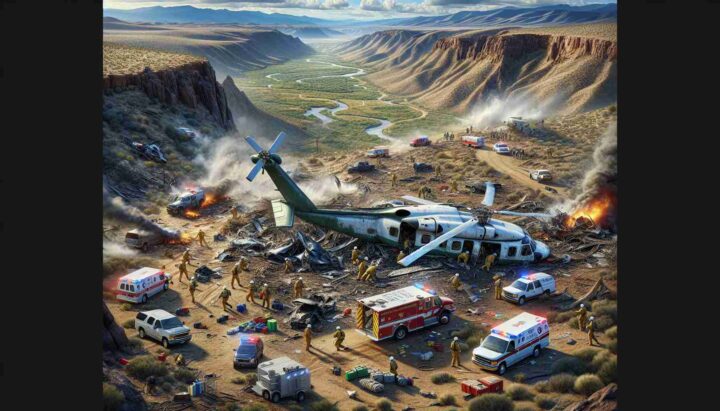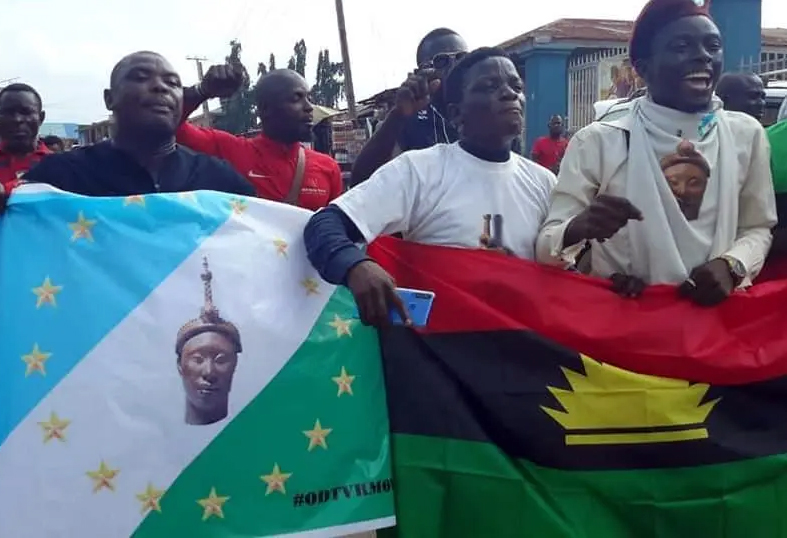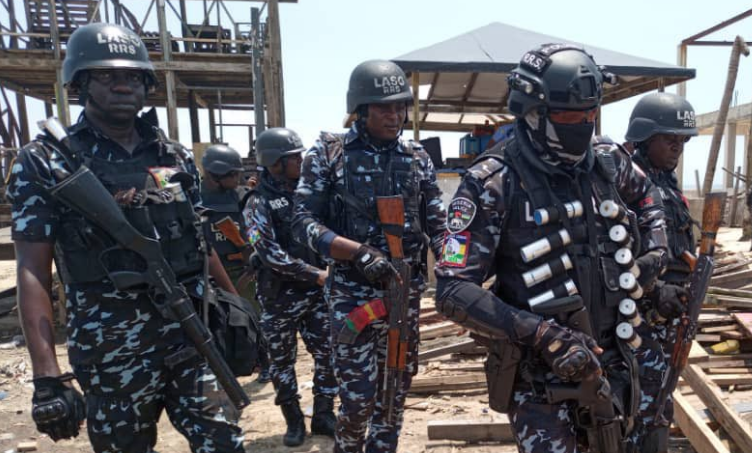This day, three years ago, an unprecedented event in Nigeria’s history occurred. The country’s 21st Chief of Army Staff (COAS), Lt Gen Ibrahim Attahiru, died alongside ten other officers and men in an air crash. Attahiru was only in office for three months, yet he came across as an extraordinarily purposeful and committed gentleman officer and Nigerian. His mission to Kaduna State, where the unfortunate incident abruptly ended his big dreams for the country, indicated his commitment to reforming the Nigerian Army!
In addition to an urgent desire to improve the welfare of Army officers and men, Attahiru was emphatic about raising the quality of training the Army offered its personnel. He matched this belief with action.
During his brief stay at his office that fateful morning, one of the few people he saw was the then Chief of Training at Army Headquarters, Major Gen. Okwudili Azinta. They, for the umpteenth time, discussed the event scheduled for the next day at the Nigeria Army Depot, Zaria. The depot is the institution that trains army recruits, and it was the passing-out- parade of a new set of recruits on Saturday, May 22. Attahiru felt it was essential to be there to boost the morale of these new entrants before their deployment to the different formations of the Army where they would serve. Azinta testifies in the former chief of Army’s staff posthumous biography: The Man, The Soldier, The Patriot, the biography of Lt. Gen Ibrahim Attahiru that: “he was interested in training officers and men, right from recruits to the most senior officers…”
He took the encouragement and mobilisation of his officers and men personally. However, the issue about the depot was not just about welfare; it also concerned the men’s training. A few times in previous weeks, Attahiru and Azinta had conversations about the need to improve the quality of instruction and the curriculum at the depot to improve the quality of products and enhance effective deployments of recruits. To move their discussions along, Azinta, during their encounter that morning, promised to stay back in Zaria after the Saturday event and hold sessions on achieving this chief’s aim. Unfortunately, the COAS and his team never saw the day.
Advertisement
Attahiru’s unfortunate passing alongside some of his closest aides on that flight shook the nation to its foundations. Officers and men who travelled and died with the former Chief of Army Staff included Acting Chief of Military Intelligence, Brigadier General Abdulkadir Kuliya; Chief of Staff to the late COAS, Brigadier General Mohammed Idris Abdulkadir; Acting Provost Marshal, Brigadier General Olatunji Lukman Olayinka, Aide-De-Camp to the COAS, Major Lawal Aliyu Hayat, and Major Nura Hamza, Flight Lieutenant Taiwo Olufemi Asaniyi, Flight Lieutenant Alfred Ayodeji Olufade, Sergeant Opeyemi Isaiah Adesina, Sergeant Umar Saidu and Aircraftman (ACM) Olamide Matthew Oyedepo.
In his very short tenure, Nigerians got a sense that their security would be more assured. He spoke about it but also acted. One such action, which the late COAS, noted for his readiness to lead from the front took, was the dramatic recovery of some territories captured by Boko Haram insurgents in February 2021. He visited the war theatre on Sunday, February 21 2021, and motivated the force to recapture the territories taken by the insurgents within 48 hours. He addressed them as follows:
“I bring you very special greetings from the President and Commander-in-.-Chief of the Armed Forces.
Advertisement
“I present myself as your Chief of Army Staff. To get to meet you and you get to know me as well.
“The essence of this visit is operational. The idea is to motivate you.
“In the last few days, we have had attacks in your area of responsibility. It is high time we get back and fight through and support our forces ahead of you.
“Areas around Marte, Chikingudo, Kirenowa, and Kirta, Wulgo must be cleared within 48 hours. Rest assured of all the support required in this onerous task.
Advertisement
“I have just spoken to your Theatre Commander, General Officer Commanding, you cannot let this nation down. You must go there and do the needful, and I will be right behind you.
“You have presented certain issues that came up; Overstay of soldiers, sooner rather than later; we will address.
“Where there are no adequate A and B vehicles, we will provide.
“With those few remarks, I wish you well on the operation, and I know the morale remains high.”
Advertisement
The soldiers picked up the gauntlet and recovered the territories within 24 hours! Apart from Marte’s dramatic recovery, Attahiru’s “take the attack to the enemy” principle had an enduring impact on the fortunes of the Nigerian forces, with the surrender of about 35,000 Boko Haram fighters. He knew where he was going with his strategy and told anyone he discussed the issue with that Boko Haram would, “Insha Allah,” be history before the end of 2021. Sadly, the man of vision did not live to see the end of the year as he purposed!
But visionaries who pursue and share their dreams do not die with their visions; this is the joy about Attahiru. The patriot in him fought like every day was his last. One of the rapid steps he took was to emphasise and spread the gospel of unity in the fight against insecurity in Nigeria.
Advertisement
Attahiru believed that the military must unite to fight the war. As a first signpost, he changed the operation’s name in the country’s North-East from Lafiya do le (Peace by force) to Hadin Kai, which means “heads put together!” The COAS and his colleagues in the Air Force and Navy did not leave their subordinates in doubt as to the determination to get the three forces working together in unison, and this brought significant successes, which their successors are now building on.
Testifying to Attahiru’s vision on this front, former Chief of Air Staff, Air Marshal Oladayo Amao (rtd), says in his tribute to his late course mate and colleague: “We were together at the forefront of the counter-insurgency operation. We crafted strategies to combat insurgency and other security challenges with high aspirations. We had similar visions with the fundamentals of joint operations and synergy as a cornerstone of our strategy.”
Advertisement
Attahiru also spread his belief in the Theory of the Trinity, which speaks to the essential partnership between the Army, the government, and the people. He was convinced that the Nigerian Army needed to seek the understanding and earn the trust of the Nigerian people in its commitment to improve security. His idea of putting heads together also involved other security and intelligence agencies, the local communities, and the media. His strategy was to promote community-based intelligence and tactical efficiency. He wanted a better understanding between the Army and the mass media. Seeing the media as the intermediary between the Army and the people, he felt that the partnership between the two must be robust. To foster this, he promptly approved training sessions aimed at re-orientating spokespersons for the Army.
He also approved leadership seminars for relevant Army personnel. They planned that these sessions would take place across the country, starting with General Officers Commanding and Brigade Commanders. They hoped that the re-orientation would cascade down, and every member of the Army could begin to see the importance of respecting the rights of Nigerians and the necessity of synergy between the civilian population and the military. The first part of the training, where the former National Human Rights Commission Chairman, Professor Chidi Odinkalu, and others spoke, was held in Ibadan between May 18 and May 20, 2021. The PROs’ training was ongoing in Abuja simultaneously, as Attahiru believed in firing on all cylinders to achieve success.
Advertisement
Firing on all cylinders endeared him to the Nigerian Army officers and men and many Nigerians. One such person is veteran journalist, television host, and military historian, Mr Babajide Otitoju. In his tribute to Attahiru, the journalist wrote: “He was such an excellent communicator that even the interface between the Army and the civil populace was much better. People were happy to relate to him. Though short, I can tell you that his tenure as Chief of Army Staff was eventful.”
Even though he did not live to accomplish his vision, he was conscious enough to plant the seeds of some of his ideas in the minds of those who came after him and the courage to take bold steps upon which others have built. Honest assessors of the recent history of the Nigerian military will always remember Attahiru’s short term as pacesetting and effectual. And even in death, the late Kaduna State-born General, exemplary husband, father, and humanitarian, remains a patriot who gave his all for the country he loved and served.
May he and the other eleven patriots who died with him continue to rest in peace.
Adedokun is the author of The Man, The Soldier, The Patriot, the biography of Lt. Gen Ibrahim Attahiru
Views expressed by contributors are strictly personal and not of TheCable.
Add a comment







